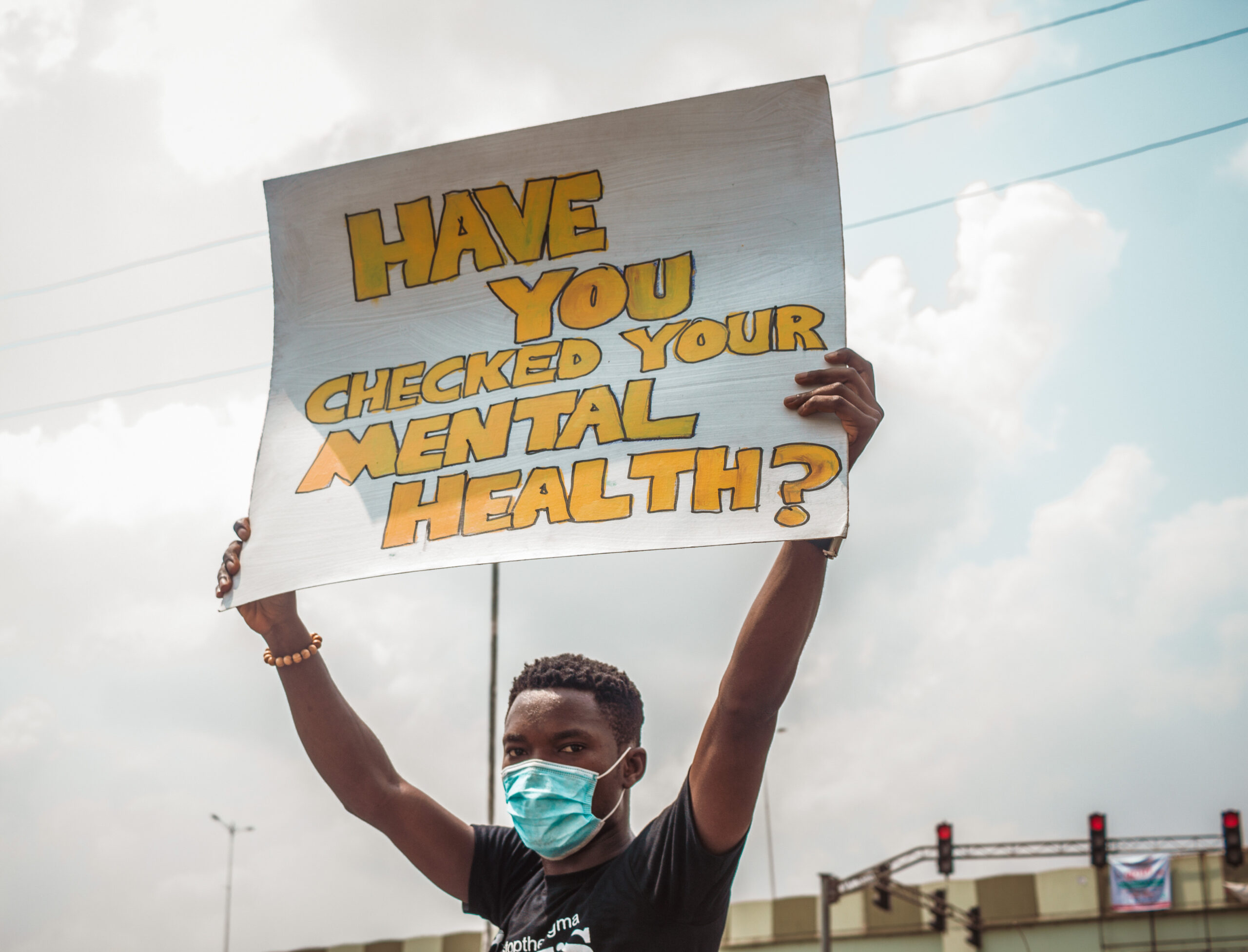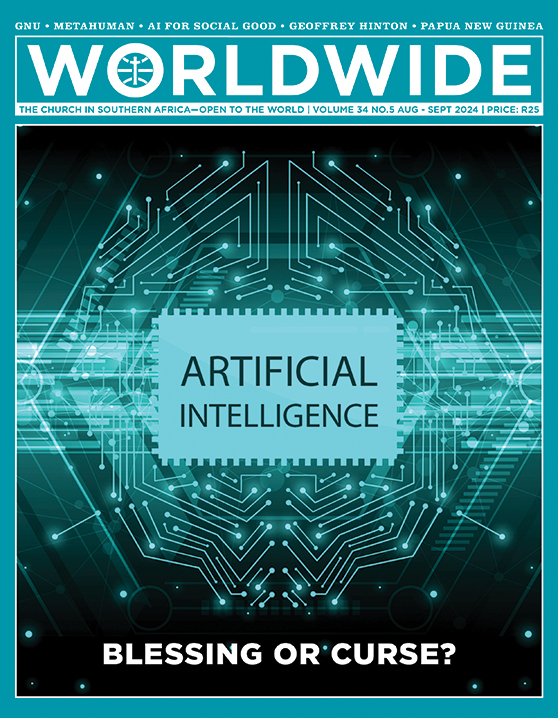
ARTIFICIAL INTELLIGENCE: BLESSING OR CURSE?
The image, according to Chat GPT, features the phrase “ARTIFICIAL INTELLIGENCE” at its centre, overlaid on a stylized depiction of a microchip and circuitry. This design symbolizes the integration of advanced AI technologies within modern electronic systems, emphasizing the critical role of AI in driving technological innovation and enhancing computational capabilities across various industries.
INSIGHTS • GOVERNMENT OF NATIONAL UNITY
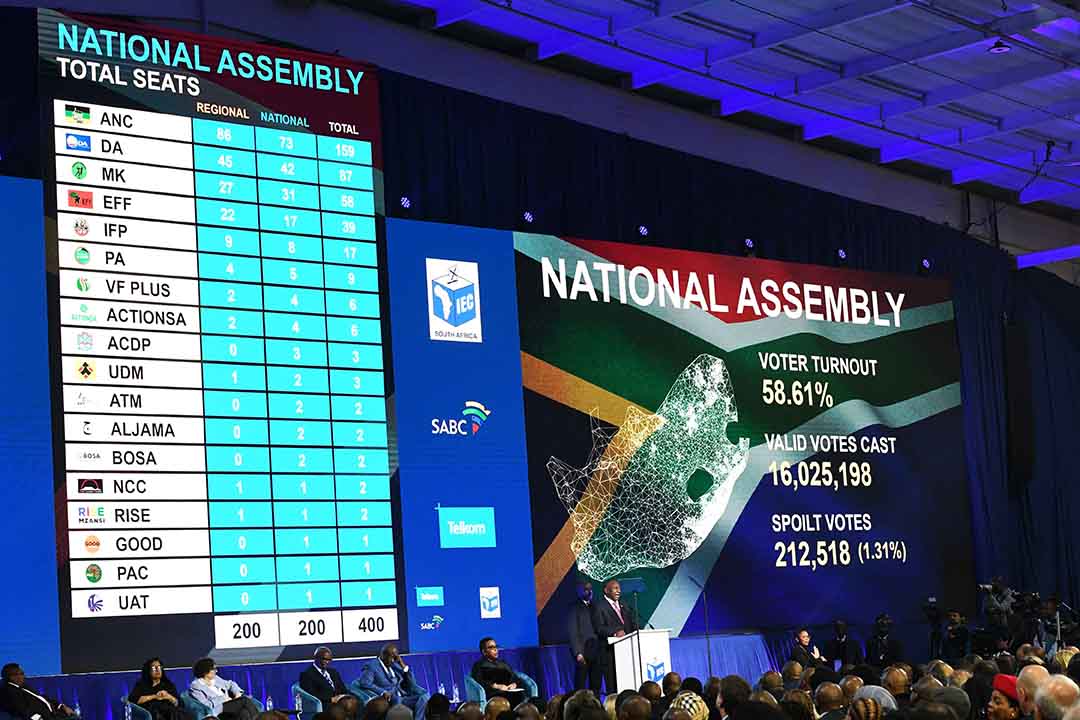
NEW GOVERNMENT, NEW DIRECTION, NEW HOPE
BY MIKE POTHIER | PROGRAMME MANAGER, SACBC PARLIAMENTARY LIAISON OFFICE, CAPE TOWN
TO BEGIN with, it is worth noting that the transition from the rule by a single party, the African National Congress (ANC), for the last 30 years to a power-sharing situation between the ANC and some of the opposition parties occurred peacefully and in an orderly manner through negotiations and compromise. In the weeks following the election results, it sometimes looked as if the ANC and the Democratic Alliance (DA), the main opposition party, as well as some of the smaller parties, would not find common ground. There were various accusations of bad faith, ‘changing the goalposts’, and failing to adhere to agreements.
Willingness to Agree
However, these were relatively minor bumps in the road. Overall, the parties showed a determination to make the coalition work. Readers with good recall will remember the process of negotiations that led to South Africa’s first democratic dispensation in 1994. Then, too, there were threats and recriminations, and parties withdrew temporarily from talks, questioning each other’s sincerity and integrity. Some parties joined the process only at the very last moment, on the eve of the elections.
Both in 1994 and now, three decades later, most of our key political leaders have chosen to follow a lawful, legitimate, and constitutional path to power. For this, we must be extremely thankful since we do not have to look very far to see what the outcome is when politicians choose other paths: violence, economic collapse, and even civil war can follow.
This is not to say, of course, that our political leaders are “angels” or that, should the opportunity arise, they would not grab as much power as possible, regardless of prior agreements and commitments. The way that the provincial unity government was finally determined in Gauteng provides an example of this—the province’s ANC leaders were so set on holding on to full power that they preferred to form a minority government, with all the instability that this implies, rather than share power in a proportional way with the DA.
Solid Institutional and Civil Society Ground
This brings us to the second point: one of the main reasons why we have managed to achieve this peaceful and orderly transition is the existence of solid systems and structures of governance, as well as strong media and civil society. It would be extremely difficult for political leaders or parties to get away with unlawful or unconstitutional power-grabs, or even to act in a way that was clearly unfair or unreasonable. The Constitution itself, the courts, and the threat of public protest all stand in the way of that. Moreover, the vibrant multi-party system is itself a strong guarantee that there will always be some degree of balance in the exercise and distribution of political power. In our current situation, fortunately, that degree of balance is increasing, not decreasing.
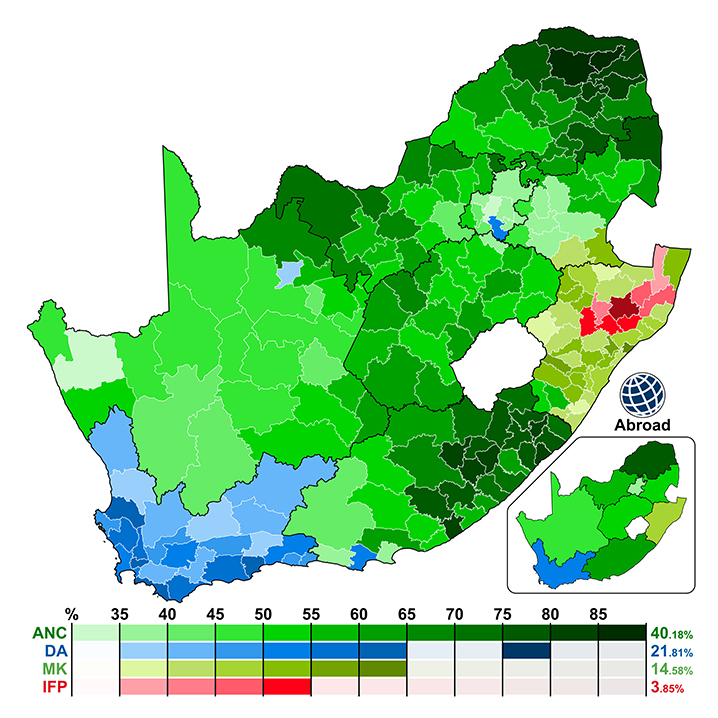
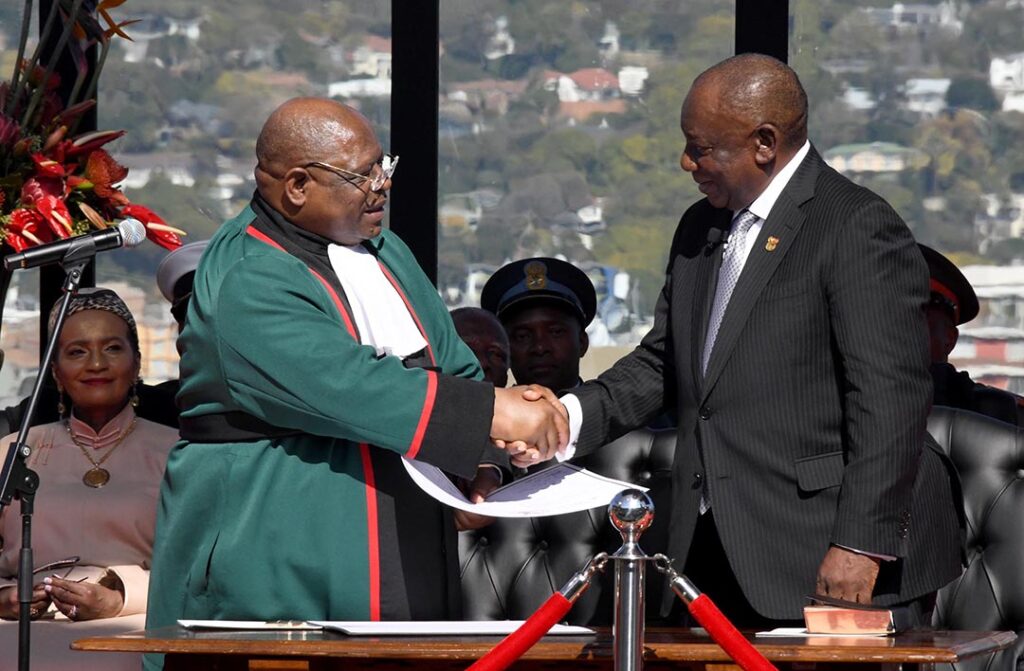
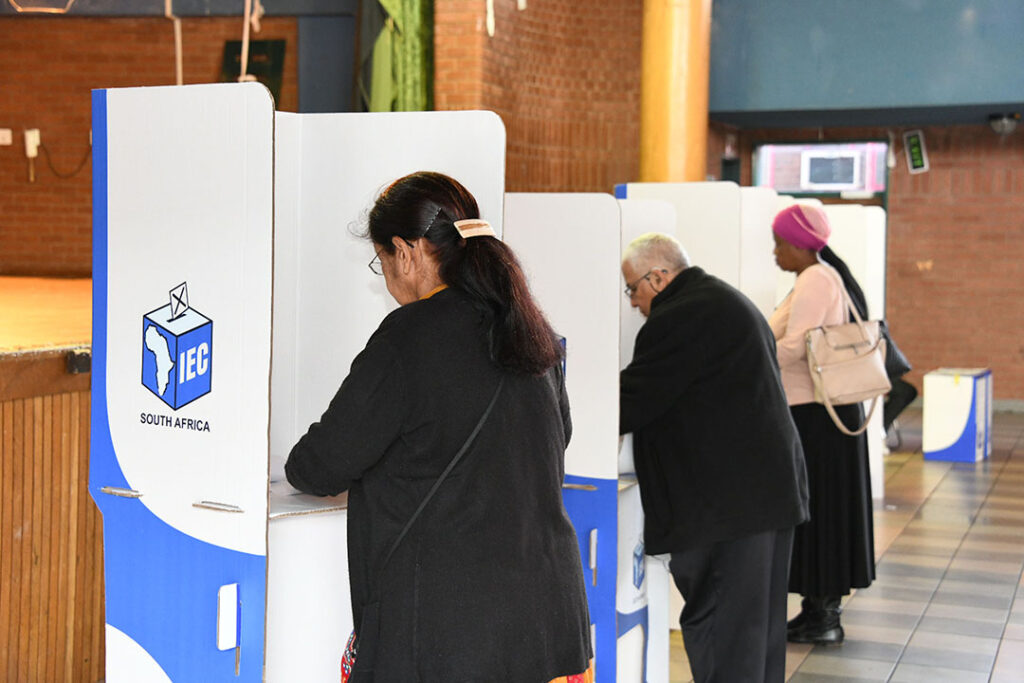
A third point to note is that our electoral system encourages—some would say it was intentionally designed to encourage—this kind of outcome. Proportional representation (PR) means that a wide variety of ideologies, political philosophies, and policy platforms can be presented to voters. All sorts of interest groups, based on shared religious or cultural perspectives, languages, geographical areas, or ethnic considerations, can compete for support, and even if they gain only a tiny number of votes (one-quarter of one percent is sufficient), they can earn a seat—and a voice—in Parliament.
This is the opposite of the kind of two-or three-party system that we see operating in the USA or Britain, and in many other African countries, which usually results in one winner and one or two losers. In a historically divided society like ours, a system that allows all the constituent groups of society to gain representation is both necessary and appropriate.
In a historically divided society like ours, a system that allows all the constituent groups of society to gain representation is both necessary and appropriate.
However, despite the intentions of the proportional representation system, during the first six national elections, South Africa’s voters chose overwhelming support for one party, the one they saw as having delivered liberation. While this was a perfectly understandable choice, given our history, it ended up distorting the desired outcome of the PR system. That has now changed—for various reasons, large numbers of former ANC voters either voted for other parties or stayed at home, bringing the party to below the 50% mark and thereby inadvertently allowing the PR system to do what it was designed to do.
GNU: A Challenging Reality
In this sense, the formation of the GNU is a very positive step for the country. It has brought new thinking and new energy into government, and the new ministers drawn from outside the ANC will be motivated to work especially hard in order to achieve success and show what they and their parties are capable of. After all, municipal elections will be held in two years’ time, and they will want to use their performance in national and provincial government to boost their local government campaigns.
We should not be surprised if the GNU runs into trouble. There will inevitably be policy clashes—think, for example, of the Patriotic Alliance’s position on foreign migrants, compared to that of the DA; or the clash between the DA and the ANC on the National Health Insurance Scheme, black economic empowerment, cadre deployment, and a host of other issues. How will the DA’s John Steenhuisen, as Minister of Agriculture, collaborate with the PAC’s Mzwanele Nyhontso, Minister of Land and Rural Development, when their respective positions on land are diametrically opposed?
It also appears that the ANC still sees itself as the governing party, and not merely as the biggest member of a partnership. The expansion in the number of ministers and deputy ministers, for example, means that although the party earned only 40% of the vote, it will have 62% of cabinet positions—a much larger slice of the cake than it is entitled to. While the other parties in the GNU appear to have accepted this for the moment, it is the kind of attitudinal problem that could cause a lot of friction in the months and years to come.
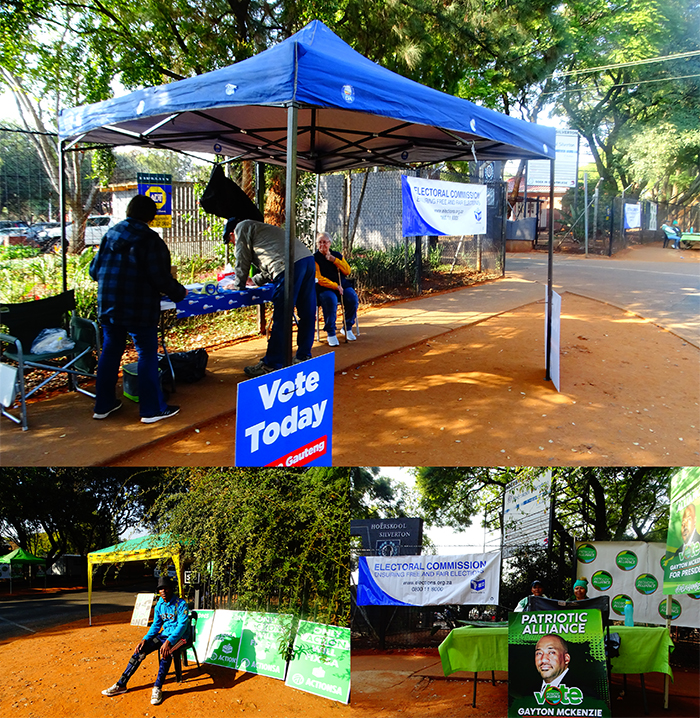
Trust and Transparency
Trust is another crucial aspect of running a successful GNU, and unfortunately, the levels of trust between most of our political leaders are low. In a recent article, the German Ambassador to South Africa, Andreas Peschke, reflected on some of the lessons that could be learned from his country’s long experience of coalition governments. According to Dr. Peschke, one of the ways in which trust can be built is through transparency: “Especially in situations where parties come to work together that may not have envisaged this before, it may be useful to put any result of coalition negotiations into writing—and to make this agreement available to the public.” This is a step that has not yet been fully implemented in our new situation. There was a ‘statement of intent’ between the ANC and the DA, but it has not been converted into a formal, binding, and public agreement. Perhaps that is still on the agenda.
Once again, South Africans and their political leaders have shown an ability to adapt, to accept the need for change, and to embark on new and unexplored paths.
Moment of Hope
For now, however, we should acknowledge the progress that has been made. Once again, South Africans and their political leaders have shown an ability to adapt, to accept the need for change, and to embark on new and unexplored paths. And they have done so peacefully and constitutionally. The GNU may turn out to be a great success and set the pattern for collaborative governance for years to come. Or it may fail, leading to new elections and new political realignments. Either way, it can be seen as a seminal development in our democratic history, and one which will hopefully encourage our politicians to move away from narrow sectoral interests and govern for the common good of the people of our country.

